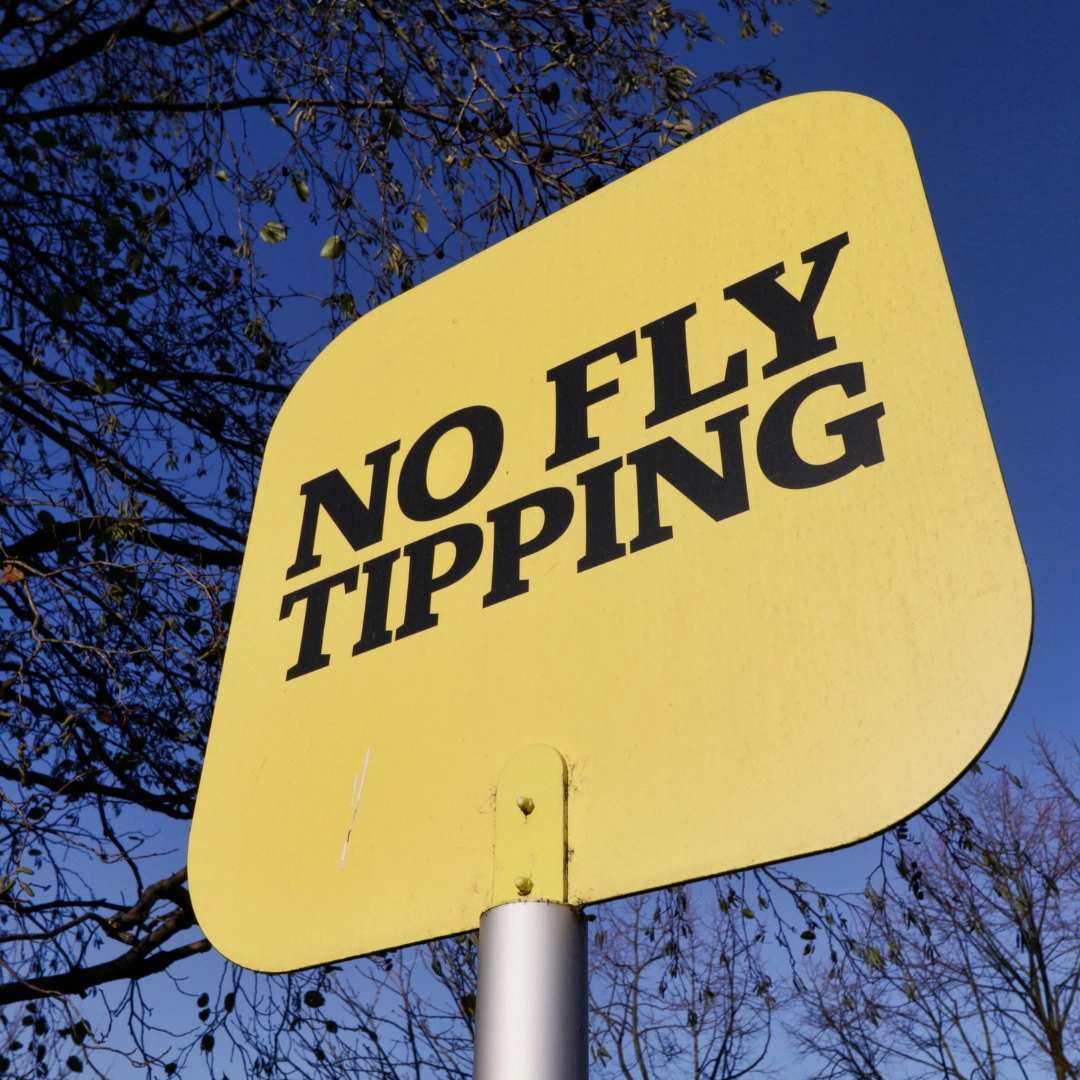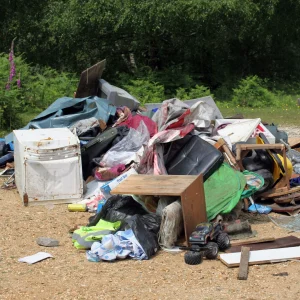Lets work together



Suite 3A, Chapel Allerton House, 114 Harrogate Road, Leeds, LS7 4NY
ukinfo@integrated-skills.com
+44 (0) 3300 888 670

Fly-tipping levels are on the increase in the UK – an expensive trend that is challenging for local authorities to resolve. From singular residents ditching small amounts of non-hazardous waste, to vanloads of noxious waste being dumped via organised crime syndicates, fly-tipping is a dangerous waste of resources that costs the taxpayer millions every year.
Here we’ll be explaining what constitutes fly-tipping, exactly how much it costs to clear illegal waste, and what we can do as specialists in integrating software with vehicle-based technologies to assist waste management teams in their battle against this unsightly environmental issue.
What Exactly is Fly-Tipping?
Fly-tipping refers to the illegal practise of dumping waste on land that is not licensed or designated to receive it. Unlike littering, which refers to individuals dropping small amounts of rubbish (which is also illegal and can result in fines), fly-tipping is larger in scale.
From large household items such as carpets, furniture or appliances, to commercial or even hazardous waste such as rubble, paint and chemicals – no matter what the waste entails, dumping it illegally is referred to as fly-tipping.
It usually occurs on public land such as road-side verges, green spaces and car parks, but can also happen on private land or even in waterways. The resulting mess is both unsightly and dangerous. Environmentally, it poses a risk to both residents and local wildlife.
How Common is Fly-Tipping?
Put simply, very common indeed. Love Junk’s 2025 fly-tipping report (created in partnership with the Department for Environment, Food & Rural Affairs) provides some stark figures:

Why Are Prosecutions Challenging?
The Environmental Protection Act 1990, later amended by the Clean Neighbourhoods and Environment Act 2005, is the primary legislation covering fly-tipping. Responsibility for enforcing the law and cleaning up the mess created by fly-tippers falls to local authorities. Unfortunately, that’s no easy task.
Largely due to a lack of video evidence to enable the identification of the vehicles and individuals involved, prosecutions are rare. In 2024, only 0.1% (or 1 in 1000) fly-tipping incidents resulted in prosecution. In fact, 61% of councils didn’t prosecute a single incident, despite dealing with 605,643 fly-tips between them.
Slightly more success was recorded regarding fixed penalty notices. 5% of incidents resulted in fixed penalty notices, but only 2 in every 10 were actually paid. These figures means that only 1 in 100 fly-tips resulted in a paid fine.
Because of the low prosecution rate and the difficulty enforcing fixed penalty notices, organised crime groups have become a huge part of the issue. They advertise their “professional” waste-clearing services to local, well-meaning residents and then brazenly fly-tip the rubbish in areas they know are not covered by CCTV. If they do receive a fine, they’ll either pay it as it’s a minimal cost for running a lucrative business or ignore it completely.
The Financial Impact on Taxpayers
Fly-tipping incurs substantial costs for local councils, which are ultimately borne by taxpayers. In England alone, the clearance costs in 2024 totalled:
The grand total for 2024 reached £84 million – largely spent fighting an uphill battle with little to no resolution of the issue.

Government Initiatives to Combat Fly-Tipping
The UK government has introduced measures aimed at strengthening enforcement, most notably:
Councils (in collaboration with police) can now identify, seize, and crush or sell vehicles used in fly-tipping. Offenders are responsible for the costs associated with these actions. Many councils are routing funding into the deployment of drones and mobile CCTV units to detect and track illegal dumping activities, and individuals found guilty can face up to five years in prison. Additionally, the Environment Agency has been granted increased resources to conduct thorough background checks on waste operators and to enforce compliance through permits, fines, and license revocations.
The Role of Waste Management Software & Technology
Implementing waste management software and technology can be instrumental in addressing fly-tipping. Integrated Skills’ SmartSuite solution can help in a myriad of ways; coordinating council responses and automating many of the processes involved.
Mobile and web applications allow the public and council workers to report fly-tipping incidents in real time (with photos, geolocation and time stamps). The data collected is fed directly into our software, enabling a faster response and better, data-driven decision-making.
As soon as an incident is reported, the system can be configured to automatically assign tasks to the nearest or most suitable clearance crew. It also takes care of the scheduling, routing and tracking of clearance operations, reducing operational costs and minimising delays.
Our software can also integrate with the Geographic Information System the council has in place; helping to map local fly-tipping hot spots and enabling councils to assign resources more effectively. This also helps councils to plan preventative measures such as well-placed CCTV and clearance checks.
Tracking trends such as the volume and categories of waste being dumped, where and in what frequency is made simple with our Microsoft PowerBI API. The data collected can be used to develop stronger enforcement strategies and to inform public education campaigns. Costs can also be monitored, supporting budget planning and enabling funds to be recovered from offenders wherever possible.
The system can integrate with existing CCTV and Automatic Number Plate Recognition systems. Secretly placed in local hotspots, these systems can catch offenders in the act and provide valuable evidence for the sake of prosecutions. Audit trails are also made easy and robust, as SmartSuite enables councils to store photos, GPS data, timestamps, and prosecution efforts in one place.
A Coordinated Approach
Fly-tipping is a multi-faceted issue that requires a multifaceted strategy for successful combat. Policy enforcement is key but challenging. Community engagement is important, and awareness campaigns can provide information re the licences clearance companies must hold, and how to check for them.
Integrated technology is vital. Leveraging the software available to enhance data analysis and operational efficiency is key to reducing costs and increasing prosecution rates. Collaboration between councils, police and environmental agencies is also key.
By adopting a comprehensive approach that combines policy, community engagement, technology, and inter-agency collaboration, local councils can make significant strides in reducing fly-tipping and its associated costs.
Contact us today for more information on our SmartSuite offering and for general guidance re the role of integrated software for reducing costs and boosting efficiencies across the board.
Would you like to know more about Waste Management Software vs The Scourge of Fly-Tipping: Creating a Coordinated Response for Local Councils? Fill in your details below and let us know how we can help.
Website Designed & Built by we are CODA